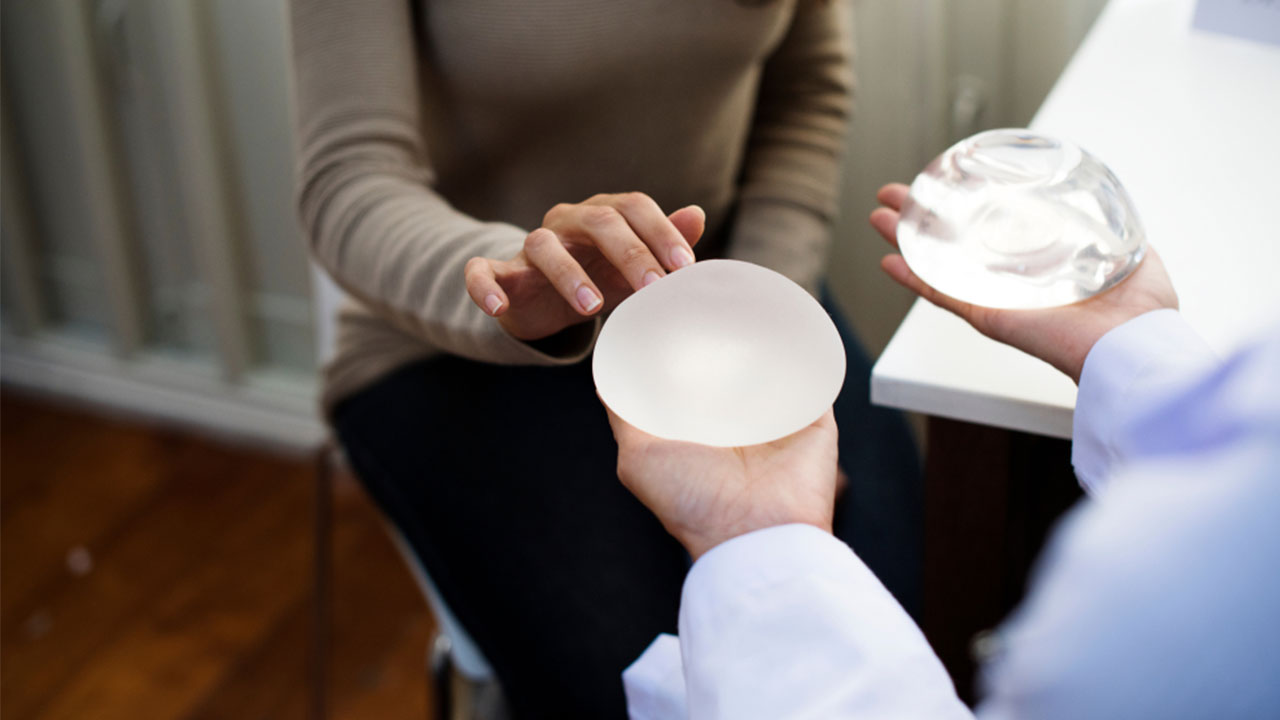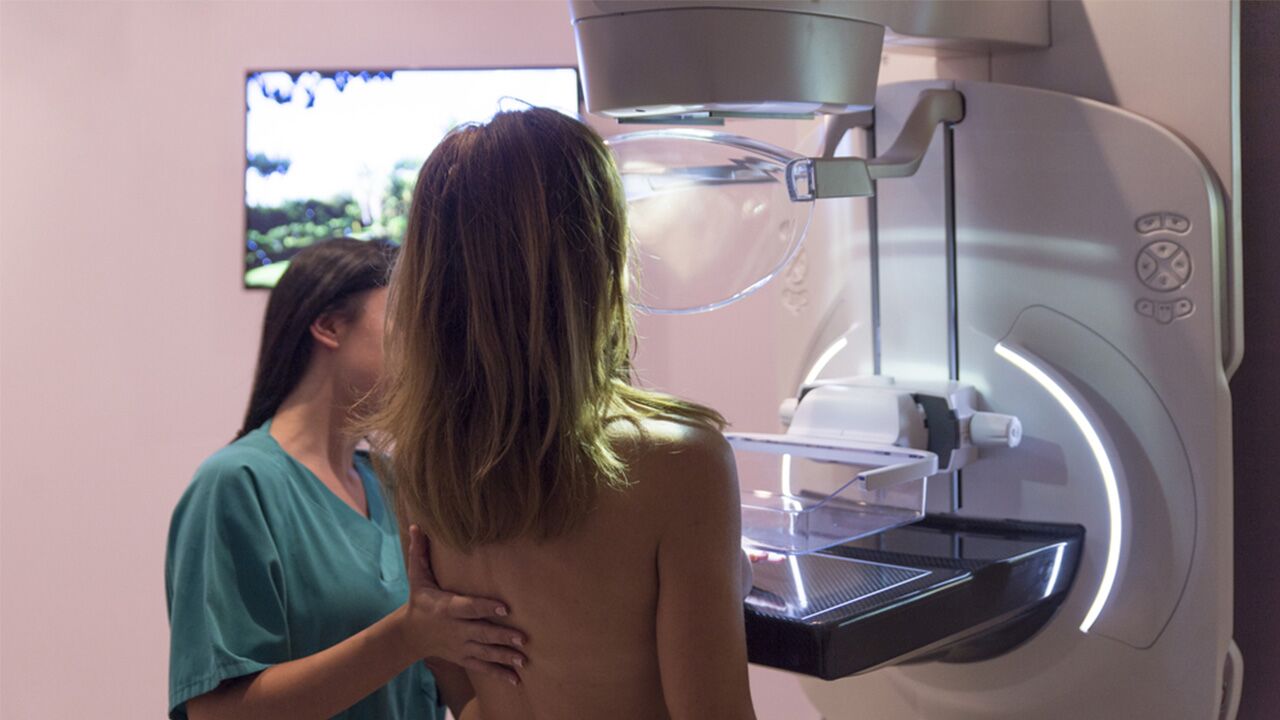What Is Breast Implant Illness, and How Can You Recover?
 By: by Amino Science
By: by Amino Science

Cosmetic surgery, or surgery performed to enhance physical features, has become a very common occurrence in the United States. According to the American Society of Plastic Surgeons, breast augmentation continues to be the most frequently performed cosmetic surgical procedure, with over 300,000 performed in 2018 alone. Moreover, women who’ve had breast cancer often undergo breast reconstruction with implants. Unfortunately, many women have also complained of worrisome symptoms following breast implant surgery—so much so that the condition is now known as breast implant illness. But what exactly is breast implant illness, and what can you do about it?
Breast Implant Illness Defined
The term “breast implant illness” refers to the multitude of symptoms some women experience after receiving breast implants. However, many plastic surgeons continue to dispute the existence of the condition, stating that “only” breast implant–associated anaplastic large cell lymphoma (BIA-ALCL)—a rare cancer of the immune system that’s more common in women who’ve had textured implants—has been found to be related to implants.
Nevertheless, tens of thousands of women disagree, and now science is beginning to offer the first whiffs of support for their claims. For example, a 2008 study found that silicone materials cause an immune response in the body. And a recent study of almost 100,000 breast implant recipients revealed that silicone implants are associated with higher rates of autoimmune disorders, such as Sjogren’s syndrome, scleroderma, and rheumatoid arthritis, as well as stillbirth and melanoma.
While this more recent study has sparked controversy among both the plastic surgery community and the Food and Drug Administration (FDA), its results have added to calls for the FDA to hold a public meeting in 2019 to discuss the issue.
What Causes Breast Implant Illness?
There are a few different theories as to why breast implant illness occurs, though most are mere speculation at this point. However, even the experts agree that breast implants are medical devices the body may perceive as foreign substances, so it’s possible that some women are simply predisposed to reacting to the materials that comprise the implants—or breast implants may trigger some women’s immune systems to overreact, which may result in a variety of symptoms that become chronic as the body continues to work to get rid of the foreign object.
In addition, breast implants are composed of over 40 different chemicals and heavy metals, many of which—like acetone, formaldehyde, toluene, benzene, mercury, arsenic, and lead—are well-known toxins. And because breast implants may sometimes rupture or leak, large amounts of these chemicals may slowly ooze into the body, possibly leading to a variety of health consequences.
Symptoms of Breast Implant Illness
The symptoms of breast implant illness are extensive and can mimic those of many other conditions. However, if you have breast implants and are experiencing health problems, some of the most common to watch out for include:
| Tender and swollen lymph nodes | Dry eyes |
| Chronic fatigue | Hair loss |
| Muscle and joint pain | Burning chest wall pain |
| Fibromyalgia | Tingling or numbness |
| Headaches | Recurring infections |
| Mood swings | Depression or anxiety |
| Chemical sensitivities | Food allergies |
| Memory loss | Skin rashes |
| Brain fog | Vision changes |
A number of autoimmune diseases have also been linked to breast implant illness. These include:
- Rheumatoid arthritis
- Lupus
- Sjogren’s syndrome
- Graves’ disease
- Multiple sclerosis
- Crohn’s disease
Breast Implant Illness Testing, Treatment, and Recovery
Unfortunately, there’s currently no test that can determine whether a woman’s symptoms are the result of breast implant illness, though the Aesthetic Surgery Education and Research Foundation states that identifying specific diagnostic testing for this purpose is one of its “current areas of focus.”
In the meantime, blood work to assess hormone levels, inflammatory markers, liver function, and whether yeast, viruses, parasites, or fungi are present, along with tests to measure levels of toxins and heavy metals, is often used to investigate the symptoms associated with breast implant illness.
However, support groups and websites set up to help women suffering from symptoms of breast implant illness indicate that these tests often come back negative, so a woman should use her symptoms to guide her in determining whether treatment should go forward.
And the first step in treating breast implant illness is implant removal via explant surgery. Once the implants are removed, the process of detoxification and healing can then begin.
Because Western medicine has not yet provided substantial support to women experiencing the symptoms associated with breast implant illness, groups have had to find their own path to healing. The method that’s shown the most success involves:
- Nutrition: Eat a diet that promotes the reduction of inflammation in the body by focusing on plenty of organic vegetables, whole grains, lean protein, and healthy fats.
- Water: Avoid dehydration and help flush out toxins by drinking plenty of purified water.
- Sleep: Ensure you’re supporting the body by getting plenty of sleep each day.
- Exercise: Improve circulation and assist detoxification with exercises that increase flexibility, strength, and aerobic capacity.
- Supplementation: Take a multivitamin, omega-3 fatty acids, calcium, magnesium, essential amino acids, and probiotics each day.
Especially important is supporting the gastrointestinal (GI) tract and immune system, which are intricately related and of paramount importance to a full recovery from breast implant illness. A whole foods diet with plenty of fiber and probiotics can help heal the gut and soothe the immune system, which aids the detoxification of toxins and heavy metals.
A balanced amino acid supplement can also help rebuild the body’s systems so they’re better able to support the process of detoxification. For example, levels of the amino acid glutamine are decreased by both stress and pathogens, but glutamine is the most abundant amino acid in the body and is necessary for proper functioning of both the immune system and GI tract.
In fact, sufficient levels of glutamine can help restore GI tract mucosa and stop the symptoms of leaky gut that are common to women with breast implant illness.
Likewise, a deficiency in amino acids impairs immune function and increases the body’s susceptibility to disease. In fact, a 2007 study demonstrated that the amino acids arginine and glutamine, as well as cysteine precursors, are especially effective for enhancing immune system function.
Breast Implant Safety
According to the American Society of Plastic Surgeons, seven different types of breast implants are currently on the market. These are:
- Saline breast implants
- Structured saline breast implants
- Silicone breast implants
- Form-stable breast implants (gummy bear implants)
- Round breast implants
- Smooth breast implants
- Textured breast implants
Although studies have found that saline implants are less likely to be associated with breast implant illness, they’re still composed of a number of toxic materials that have caused reactions in many women. Moreover, as mentioned earlier, textured implants have been found to cause BIA-ALCL in some women.
The FDA itself recognizes that some women with implants have experienced health problems—such as connective tissue diseases, breastfeeding difficulty, and reproductive issues—though the agency continues to maintain there’s not enough evidence to support an association between breast implants and these conditions.
However, the FDA does acknowledge 26 separate side effects and complications that can result from breast implants. Some of the risks of breast implants include:
- Additional surgeries
- Breast pain
- Capsular contracture (tight scar tissue around the implant)
- Nipple and breast sensory changes
- Enlarged lymph nodes
- Breast implant rupture
- Infections
Even though breast implant manufacturers such as Allergan and Dow, many plastic surgeons, and even the FDA have yet to acknowledge the existence of breast implant illness, the many women who’ve suffered symptoms since undergoing breast implant surgery wouldn’t hesitate to declare their implants are the cause.
And as these women begin to come together in support groups to raise their voices and share their stories, more and more studies are being performed that bear out what these women have long believed.
So if you have breast implants and are currently experiencing unexplained symptoms, be sure to speak with your health care provider. And don’t hesitate to seek out a breast implant illness support group for guidance as well. Thousands of women have been where you are and can help you find the answers you’ve been looking for.


Up to 25% off Amino
Shop NowTAGS: conditions
Join the Community
Comments (0)
Most Craveable Recipes




 833-264-6620
833-264-6620



















